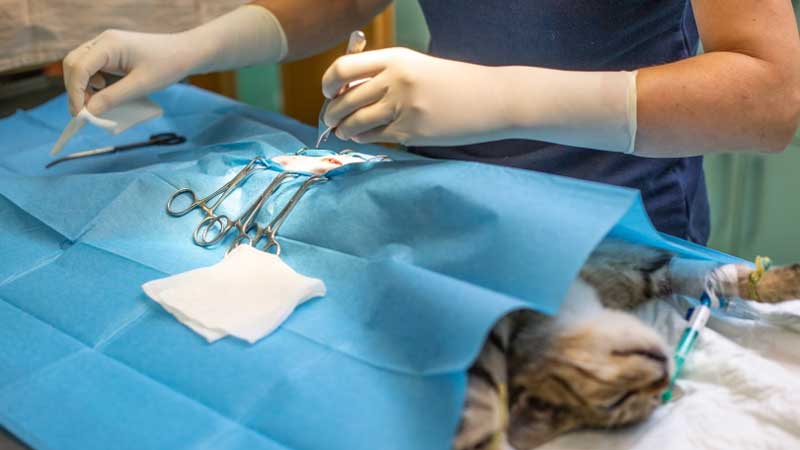Is Neutering Painful For Cats

Neutering your cat offers a lot of benefits, but the choice to have him neutered is a personal decision for you as a parent or as recommended by your veterinarian. Most rescue organizations and shelters require all male cats to be neutered to avoid overpopulation.
Neutering is a surgical procedure that is done for male cats. It is done by surgically removing their testicles to prevent them from producing unwanted kittens and to prevent overpopulation.
What are the benefits of neutering?
The main benefit of neutering is to help prevent overpopulation as a neutered cat can no longer reproduce. This also reduces unwanted behaviors and health risks for cats. It reduces aggression, roaming, and unwanted urine marking of cats. Neutering also reduces the risk of developing testicular cancer and lowers the risk of prostatitis, prostate cancer, and prostatic hyperplasia.
Is neutering painful for cats
Cat neutering in itself is a painful surgical procedure but it is reduced with the help of modern-day pain medications. Most cats will experience minimal discomfort after the surgery especially when post-surgical medications are followed like administering pain medication after the procedure even if your cat doesn’t seem to be in pain.
During the procedure, cats are fully anesthetized they wouldn't feel any pain. They experience some discomfort and grogginess which will wear out after rest. Administering a pain medication will also help prevent it. It is extremely rare that a cat may experience any serious harm as a result of neutering.
How to care for your cat after the surgery?
Male cats recover faster during the procedure compared to female cats that undergo spaying procedures. They can normally resume their activity in about 2-4 days after the surgery. You should also control your cat's movements and activity to help him heal faster as excessive activity can open up the wound/incision and can cause swelling. Also, make sure to follow the vet's post-surgical instructions/medications to ensure a proper and speedy recovery.
Neutered cats may experience nausea, discomfort, vomiting, and lethargy. Keep your cat in a dark, quiet, room or place with low lightning as your cat's eyes will be sensitive to light. This may also be caused by the protective ointment that your vet placed on your cat's eye to prevent them from drying out.
Give your cat a small amount of water to sip on, and a smaller portion of their food to avoid vomiting. Place their litter box close to where they rest so they won't have to walk far any farther when they want to relieve themselves. Restrict their movements by putting them in a cage or crate if necessary, cats will just sleep if they got nothing to do and that will speed up the recovery process.
Cats will take around 7 days to become fully recovered after being neutered. Call or take your cat to the vet after 48 hours if it's still vomiting, having diarrhea, or being lethargic.
Conclusion
Prepare necessary things before deciding to take your cat into the procedure to ensure that your cat is safe and can heal properly. Talk to your vet in advance to help you get prepared for the things you need and to help your cat adjust after the procedure. Keep your cat's environment clean to avoid infection and make sure that you also do your research by reading articles about cat neutering.
You May Also Like
 Cat BehaviorNeutered vs. Unneutered Male Cat: Physical and Behavioral
Cat BehaviorNeutered vs. Unneutered Male Cat: Physical and Behavioral Cat BehaviorDo Male Cats Change After Being Neutered?
Cat BehaviorDo Male Cats Change After Being Neutered? Help & AdviceHow Do I Know if My Cat Needs to be Neutered?
Help & AdviceHow Do I Know if My Cat Needs to be Neutered? Cat HealthWhat Is The Best Age To Spay Or Neuter A Cat?
Cat HealthWhat Is The Best Age To Spay Or Neuter A Cat? Cat HealthWhat You Need to Know About Cat Incontinence
Cat HealthWhat You Need to Know About Cat Incontinence Cat HealthWhat Are The Symptoms Of Gastritis In Cats?
Cat HealthWhat Are The Symptoms Of Gastritis In Cats?